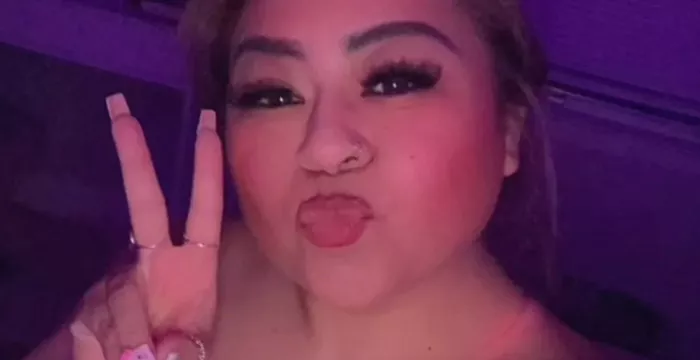
Ash Trevino has become one of the most talked-about personalities on TikTok, not for dance challenges or beauty tutorials, but for livestreaming her explosive personal life. With hundreds of thousands of followers hanging on her every word, Trevino’s brand of unfiltered entertainment raises difficult questions about parenting, platform responsibility, and the ethics of monetizing personal drama.

From Ordinary to Viral
A former dental-office employee in Texas, Trevino launched her TikTok account in early 2023. At first, her videos were simple lifestyle snippets and selfie montages. Her content took a dramatic turn when she began broadcasting live sessions that showed arguments, intimate details, and phone calls with incarcerated partners. Viewers quickly labeled her an “inmate hopper” after learning she had dated multiple men serving prison sentences, including one convicted of murder.
Why Is Ash Trevino Making Headlines?
Ash Trevino continues to draw media and public scrutiny for a series of high-profile controversies:
- Suspicious Pregnancy Claim: She recently announced her third pregnancy on TikTok, but viewers quickly questioned the authenticity of her ultrasound photo, with some alleging it was sourced online.
- CPS Involvement: Reports claim Child Protective Services has investigated Trevino over 20 times, largely due to alleged neglect and inappropriate behavior livestreamed with her children present.
- Exploitation for Views: She has been accused of monetizing her daughters' personal struggles, including livestreaming during hospital visits and showcasing their modest sleeping arrangements.
- Problematic Relationships: Trevino’s dating history includes convicted inmates, including one serving time for murder and another 19-year-old with a record of domestic violence. These relationships are often discussed publicly during her livestreams.
- Public Appearances and Law Enforcement Encounters: Her repeated visits to San Antonio—sometimes involving police interactions—have been widely circulated on social media, further fueling public fascination and concern.
The San Antonio Pattern
Over the past year, Trevino has made frequent trips to San Antonio, so often that residents and news outlets have taken notice. In March, she briefly retrieved belongings from a police evidence locker following an unpublicized run-in with law enforcement. Two months later, she was spotted at La Cantera shopping center, accompanied by fellow creators with over three million combined followers. These recurring visits underscore both her bold disregard for privacy and the public’s fascination with her every move.
Controversial Relationships
Trevino’s romantic life is central to her online persona. She has introduced her teenage daughters to several of her incarcerated partners and livestreamed private conversations with them. Critics point out the potentially harmful dynamics of a 36-year-old mother dating a 19-year-old convicted of domestic violence. Such liaisons not only spark moral outrage but also normalize risky behavior to impressionable viewers.

Parenting Under Scrutiny
Perhaps the most unsettling aspect of Trevino’s content is how she involves her children. Multiple viewer reports have prompted at least 20 visits from Child Protective Services. In one infamous livestream, Trevino continued dancing for thousands of viewers even as her daughter vomited off-camera. She later defended herself by posting a video of an air mattress on her living room floor, insisting her children were fine. Yet many remain unconvinced.
Monetizing Chaos
Trevino does not shy away from admitting the financial incentives behind her antics. She once revealed earning up to $12,000 in a single TikTok Live session, paid through viewer gifts and engagement. This direct link between sensational content and income creates a perverse incentive to escalate drama, blur personal boundaries, and exploit both her relationships and her children for profit.

Public Reaction and Debate
The reaction to Trevino has been deeply polarized:
- Supporters admire her candor, celebrate her defiance of “haters,” and laud her as an independent woman unafraid to live on her terms.
- Critics argue she endangers her children, glamorizes criminals, and preys on viewers’ darker curiosities. Many call for deplatforming, yet TikTok has taken no permanent action against her account.
Media commentary ranges from admonishing viewers for fueling the spectacle to sympathy for Trevino’s underlying mental health struggles. A growing number of commentators suggest that stopping the cycle requires refusing to watch her content rather than relying solely on platform moderation.
Conclusion
Ash Trevino’s story is emblematic of broader challenges facing social media today. Platforms reward engagement above all else, leaving creators — and their families — vulnerable to exploitation. Until policies change or audiences shift their viewing habits, influencers like Trevino will continue to thrive on controversy. Her case forces us to ask: at what cost do we consume this kind of entertainment, and what responsibility do we bear for the lives we invade with a simple tap on our screens?





Comments